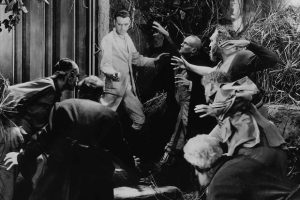Introduction: Setting the Stage for Revolution
The story of the Haitian Revolution is a remarkable chapter in the annals of history. It is a tale of resilience, courage, and the unquenchable thirst for freedom. In the late 18th century, the French colony of Saint-Domingue (modern-day Haiti) was a brutal slave society, where the majority of the population toiled under the oppressive yoke of slavery. This blog post will delve deep into the intricacies of the Haitian Revolution, exploring its causes, key players, pivotal moments, and the enduring legacy it left on the world.
Seeds of Discontent
The Spark of Revolution
The Haitian Revolution did not erupt overnight; it simmered for decades under the surface. One of the key catalysts was the French Revolution, which ignited the flames of liberty and equality in the hearts of the oppressed. The revolution’s ideals of “Liberté, égalité, fraternité” resonated with the enslaved population of Saint-Domingue, who yearned for their own liberation.
The seeds of discontent were sown through the brutal conditions of slavery. Enslaved Africans endured unimaginable hardships – forced labor, physical abuse, and dehumanization. Yet, beneath this suffering, a sense of community and shared identity was taking shape. Vodou, an Afro-Caribbean religion, played a pivotal role in uniting the enslaved and fostering a spirit of resistance.
Leadership and Aspirations
Toussaint Louverture emerged as a central figure in the early stages of the revolution. A self-educated former slave, Louverture possessed both military acumen and a vision for a free and independent Haiti. His leadership was instrumental in organizing the enslaved population and building a formidable force to challenge the colonial powers.
Revolution Unleashed
The Boukman Uprising
The revolution burst forth into full-fledged conflict in 1791 with the Boukman Uprising, named after Dutty Boukman, a vodou priest and revolutionary leader. This event marked the first organized rebellion against the French colonial rule. Slaves revolted, burning plantations, and declaring their determination to gain freedom.
Challenges and Alliances
The Haitian Revolution faced numerous challenges, including military intervention from France, Spain, and Britain, who sought to quell the uprising and protect their economic interests. In this crucible of adversity, Toussaint Louverture’s strategic genius shone. He forged alliances with different foreign powers, playing them off against each other to safeguard Haitian interests.
The Triumph of Independence
The Rise of Jean-Jacques Dessalines
After the capture and imprisonment of Toussaint Louverture by the French, Jean-Jacques Dessalines emerged as a formidable leader. He was a fierce and determined general who would ultimately lead the Haitian forces to victory. Under his leadership, the revolutionaries continued to defy the odds, winning battles and inching closer to their goal of independence.
Declaration of Independence
On January 1, 1804, Jean-Jacques Dessalines made history by declaring Haiti’s independence, thus marking the birth of the world’s first black republic. This monumental achievement sent shockwaves through the international community, challenging the prevailing notions of racial superiority and colonial dominance.
The Price of Freedom
The Legacy of Destruction
The Haitian Revolution, while a beacon of hope for enslaved people worldwide, came at a great cost. The conflict had left the once-prosperous colony in ruins, both economically and socially. Plantations lay in ruins, and the infrastructure was in shambles. Furthermore, the nation was deeply divided along racial lines, with animosities that would persist for generations.
International Isolation
Haiti’s newfound independence was met with resistance and hostility from many Western nations. Fearful of the revolutionary ideas spreading to their own colonies, countries like the United States and France imposed embargoes on Haiti, isolating it from the global economy. This isolation further hindered the nation’s ability to rebuild and develop.
The Lasting Legacy
Inspiration for Freedom Movements
The Haitian Revolution’s impact extended far beyond its borders. It served as an inspiration to enslaved and oppressed people worldwide, proving that even the most formidable colonial powers could be defeated. The struggle for freedom in the Americas, including the fight against slavery in the United States, drew inspiration from the Haitian Revolution.
Championing Racial Equality
Haiti’s revolutionary success challenged prevailing notions of racial inferiority. The establishment of a black republic shattered the myth of white supremacy and offered a powerful counter-narrative to the prevailing racism of the era. While racial equality remained a distant dream for many, Haiti stood as living proof that it was possible.
Haiti’s Enduring Legacy of Freedom
The Haitian Revolution is a testament to the indomitable human spirit and the unyielding desire for freedom. It was a struggle that transcended borders, inspired generations, and shook the foundations of colonialism. Despite the immense challenges and sacrifices, the people of Haiti emerged victorious, forging a path toward a more just and equal world.
As we reflect on this remarkable chapter in history, we must remember the countless individuals who fought and died for a better future. Their legacy endures in the ongoing quest for justice, equality, and human rights. The Haitian Revolution reminds us that even in the face of seemingly insurmountable odds, the flame of freedom can never be extinguished.












Add a comment